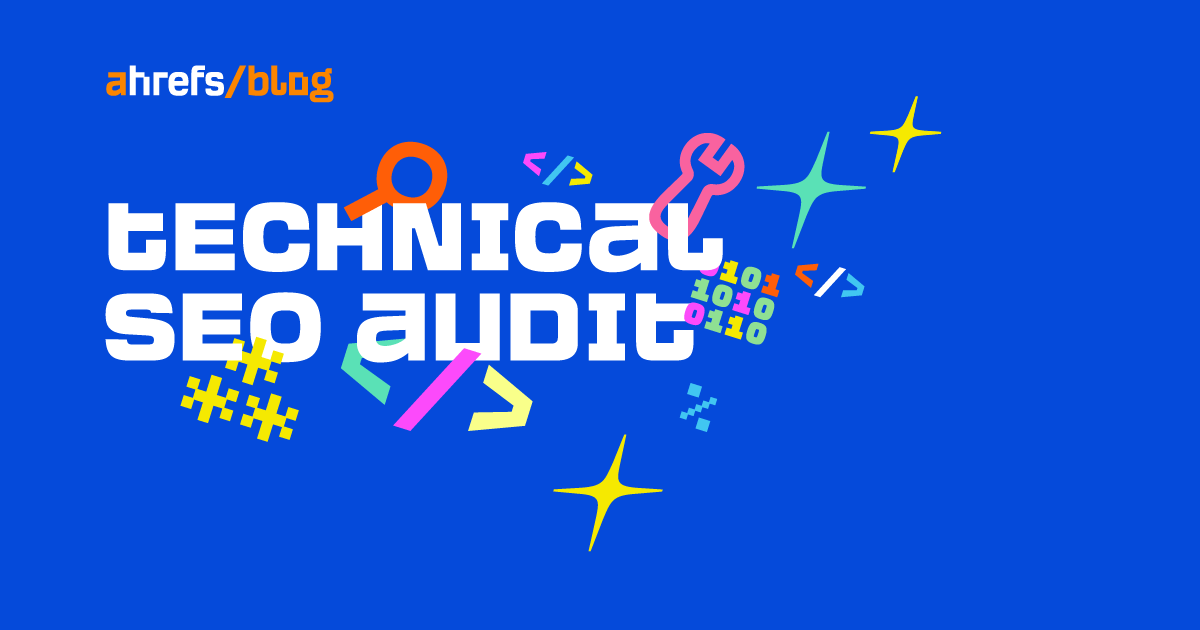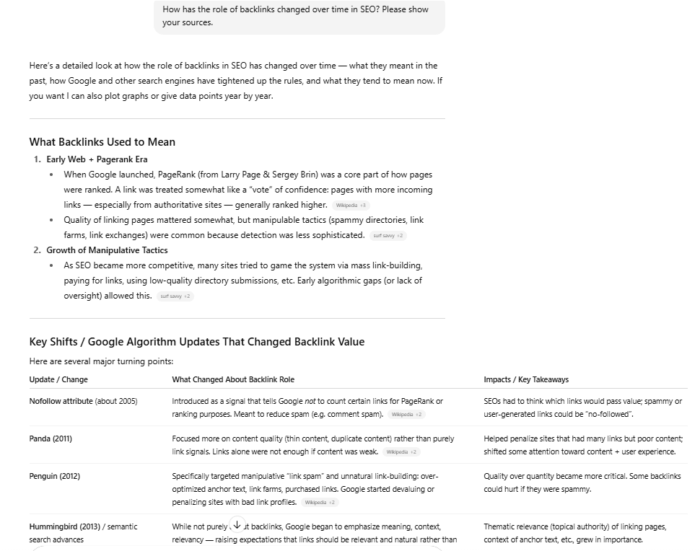15+ Technical SEO Interview Questions For Your Next Hires via @sejournal, @olgazarzeczna
Hiring a technical SEO specialist? Use these sample interview questions to explore their experience, skills, and level of technical SEO knowledge. The post 15+ Technical SEO Interview Questions For Your Next Hires appeared first on Search Engine Journal.

Technical SEO requires technical and analytical skills together with a good understanding of how Google and other search engines work.
A technical SEO must be familiar with the most popular CMS systems and know at least the basics of HTML, CSS, and JavaScript.
In addition to that, a good technical SEO should know the fundamental rules of SEO and be able to identify if a website breaks these rules.
Finally, a technical SEO must be able to offer possible fixes to the problems identified on the website and be able to determine whether the fixes were implemented correctly.
But how can you verify that your next technical SEO hire has these skills and knowledge?
In this article, you’ll find 15 sample job interview questions that will help you decide whether the person you are interviewing is the right candidate for a technical SEO position.
Let’s get started!
1. How Do You Check Whether A URL Is Indexed By Google?
The site: command is the simplest way to quickly check if a given URL is in Google’s index.
Every technical SEO should know the site: command and, ideally, a bunch of other Google search operators that allow for filtering and narrowing search results.
In addition, you may also ask the candidate how they would check how many pages are indexed by Google and what the most accurate way of doing that is.
Here your ideal technical SEO hire should demonstrate familiarity with the Google Search Console Coverage report and indicate how it differs from the site: command.
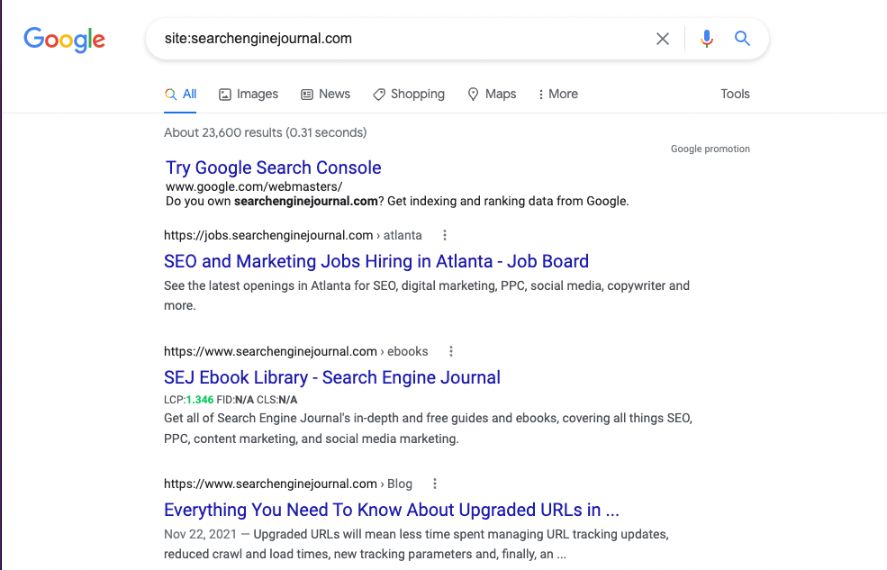 Screenshot from search for [searchenginejournal.com], Google, July 2021
Screenshot from search for [searchenginejournal.com], Google, July 2021
2. How Do You Block A URL From Being Indexed?
With this question, you want to see whether your potential technical SEO hire actually knows the purpose of a no-index tag and does not confuse it with blocking a page in robots.txt.
They should know that robots.txt is for controlling and optimizing crawling while no-index tags are for keeping pages out of Google’s index.
In addition, you may also ask about the best ways to protect a page from being accessed by everyone, including curious people (i.e. protecting it with a password in addition to adding a no-index tag).
If the person says that you should block such a page in robots.txt, then it means they still have a lot of SEO homework to do.
3. What Are The Most Important SEO Ranking Factors, In Your Opinion?
Of course, there is no definitive answer to this question. But hearing the person’s perspective on Google ranking factors may tell you a lot about their knowledge & experience.
A good technical SEO specialist candidate will:
Back up their answers with data or – better – data based on their own experience or SEO tests they performed. Be willing to show you their own websites and talk about the SEO strategies they used to grow the sites. Avoid absolute statements (e.g. these things are Google SEO rankings factors with this amount of weighing for every website). Understand the difference between correlation and causation. Not be afraid of saying “it depends” or “I don’t know” where it makes sense.4. What SEO Myths Have You Had Enough Of?
Only a person with at least some knowledge and understanding of SEO will be able to answer that question.
A complete newbie in many cases will often present SEO myths as ultimate SEO truths without offering any of their own insights and commentary.
If you are looking for an experienced technical SEO expert, ask them to elaborate on their favorite SEO myths and how they deal with them on a daily basis.
5. What Is Your Favorite Website Crawler And Why?
Website crawlers are probably the most important tools for technical SEOs.
You want to make sure that your future technical SEO uses a bunch of different SEO crawlers (both desktop and cloud-based), knows how to use them efficiently, and is able to perform advanced SEO analyses with their help.
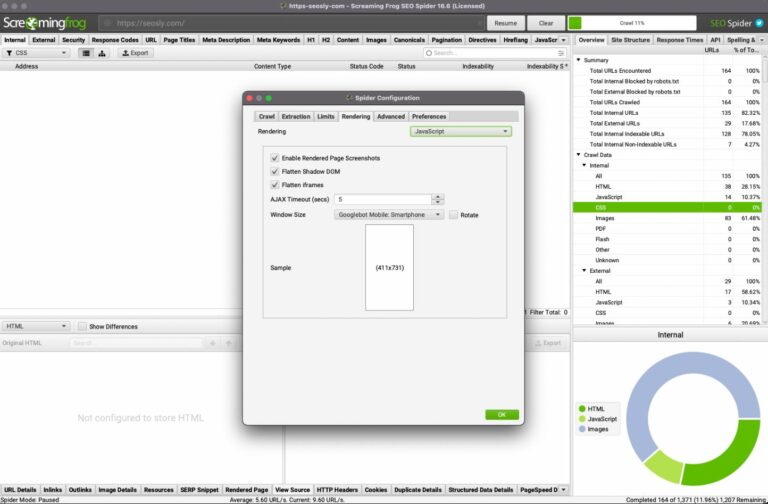 Screenshot from Screaming Frog, February 2022
Screenshot from Screaming Frog, February 2022
For example, everyone can plug the domain name into the crawler and start the crawl but only an experienced technical SEO expert will know:
How to configure the crawl to check exactly what they want to analyze (e.g. check the PSI metrics in bulk for all pages). How to execute JavaScript to compare the rendered HTML with the source HTML. How to change the user agent if the crawl does not want to start. How to actually interpret the data the crawler presents. How to prioritize the issues the crawler highlights.You want your next technical SEO specialist to be familiar with all or most of the most popular crawlers, such as Screaming Frog, Sitebulb, Deepcrawl, JetOctopus, etc.
6. How Do You Analyze Page Speed And Core Web Vitals?
Your potential technical SEO hire should use both the Google PageSpeed Insights tool (the Google Lighthouse report) and the Core Web Vitals report in Google Search Console to analyze the speed and performance of the site before drawing any conclusions or giving recommendations.
The point with this question is to check that the person:
Really knows the difference between lab data (the data provided by Google Lighthouse) and field data (the data provided by the CrUX report) and knows which ones to prioritize (i.e. field data). Knows when it’s best to use the GSC Core Web Vitals report (i.e. to check pages in bulk) and the PSI tool (to get an overview of one specific page, usually the homepage).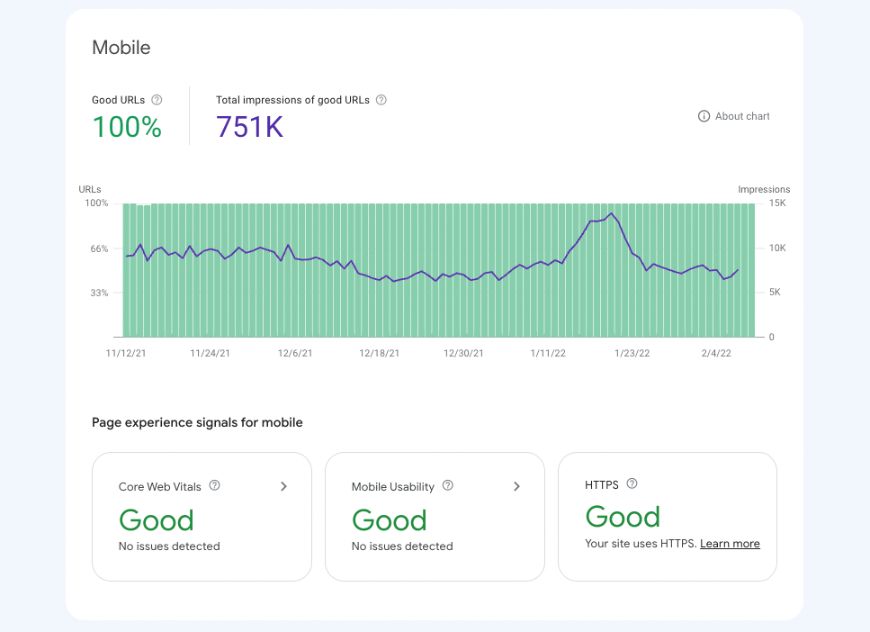 Screenshot from Google Search Console, February 2022
Screenshot from Google Search Console, February 2022
Ideally, your candidate also knows other speed and performance tools, such as GTmetrix or WebPageTest, and knows how to use crawlers to analyze the lab performance of pages in bulk.
7. What Are Some Quick Technical SEO Wins?
In this question, you want your potential SEO hire to draw on their experience.
Even though there is no best answer here, you want to see that the person can really differentiate between low-impact, high-impact, low-effort, and high-effort technical SEO optimizations.
For example, it always makes a huge difference if you compress images on the website and convert them to JPEG or WEBP. Meanwhile, it may not really help a lot to rebuild the entire website (and use a ton of resources in the process) to get it from 92/100 score to 98/100 in PSI.
Sometimes a huge technical SEO win will be simply to get rid of that 10 MB image that loads on every page instead of asking developers to recode the site to save 0.1 s by better optimizing JavaScript.
8. A Site That’s Been Online 9 Months Is Getting Zero Traffic. Why?
Ask for the possible reasons that come to mind.
Sometimes the solutions to problems in SEO are simple – for example, the site has no organic traffic because a no-index tag has not been removed or simply GA is not working correctly.
Other times, they require a ton of technical and data analysis that goes well beyond checking the indexability of pages.
With this question, you want the person to demonstrate their ability to look for solutions, think critically, and be creative.
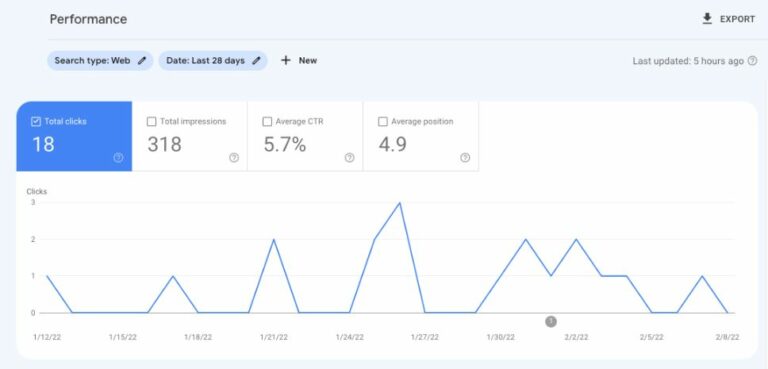 Screenshot from Google Analytics, February 2022
Screenshot from Google Analytics, February 2022
9. How Do You Check If Googlebot May Have Problems Accessing Site Content?
A good technical SEO expert must know something about JavaScript rendering and the potential problems that JavaScript-based websites may face.
Here you want the person to demonstrate:
At least basic knowledge of the topic of SEO & JavaScript (i.e. their familiarity with Martin Splitt from Google). Their knowledge of tools that allow for comparing rendered HTML with source HTML, such as Screaming Frog, Sitebulb, Rendertron, and – obviously – the URL Inspection tool in GSC.10. What Example Errors May An XML Sitemap Have And How Would You Handle Them?
I see people focus too much on XML sitemaps with small websites (a couple of hundreds of URLs or less) and too little on that for huge sites (multi-million-page sites).
When it comes to XML sitemaps, you want your next technical SEO hire to show that they know:
What XML errors can be classified as low-impact (e.g. using deprecated parameters) and high-impact (e.g. indicating non-indexable pages). When it is important to put a lot of focus on the XML sitemap (e.g. with huge sites that may have indexability and crawlability issues as opposed to small websites). How to use XML sitemaps to improve and optimize the crawl budget of the site. What pages should be included in the sitemap and how different CMS systems generate XML sitemaps.11. How Do You Perform A Technical SEO Audit?
With the help of this question, you want to check if the person has their own SEO process for auditing a website.
Do they use a set of different tools to do that? Or do they rely on a fully automated audit where the tool (not the person) decides what issues the site has and what their priorities are?
At this point, you may also:
Ask the person to show you the examples of technical SEO audits they have performed. Get them to explain how they approached particular issues. And have them talk about the results their recommendations brought (if they have been implemented).12. You Discovered That A Website Has Hundreds Of Duplicate Pages. What Do You Do?
With this question, again, you want the person to demonstrate their critical thinking abilities and desire to look for solutions.
There is no right answer here but an experienced technical SEO specialist should mention the following in their answers:
Checking the index status of these pages to make sure that these duplicates actually create a problem. Checking the user-declared and Google-selected canonicals for these pages (possibly with the new URL Inspection Tool API). Checking where these pages are in the internal linking structure of the website.In addition, you may also ask the person when duplicate content is not an issue and how to check if the site actually has this problem.
If the person is saying that the site may get penalized for duplicate content, it means they have some catching up to do.
13. What Do You Use Google Search Console For? What’s Your Favorite Use Of That Tool?
Google Search Console, in most cases, should be the number one SEO tool for technical SEOs.
You want your future technical SEO hire to share with you how they use the tool and how it helps them to achieve their SEO goals.
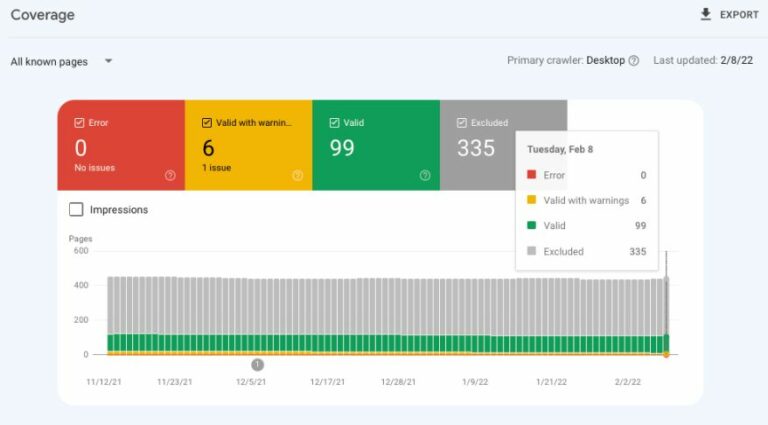 Screenshot from Google Search Console, February 2022
Screenshot from Google Search Console, February 2022
There is no single correct answer to that question again but you probably want them to mention the following:
The Coverage report and what its specific buckets are for. The Page Experience report and its limitations. The Crawl Stats report and how it can be used to analyze how Google crawls the website. The Security report and how you can use GSC to check if a site has been infected. Ways to use GSC to analyze internal linking.14. How Do You Check If The Site Uses Structured Data And Whether It Is Valid?
Structured data can be a specialty itself within SEO but you still want your technical SEO to:
Be familiar with tools, such as Schema Markup Validator and Google Rich Results Test and know the difference between them, Know how to use crawlers, such as Screaming Frog or Sitebulb to analyze structured data in bulk for many pages, Be familiar with SEO Chrome extensions like Detailed SEO that allow for quickly looking up what types of structured data are used on a particular page.Here, you may also ask the person about the difference between structured data, rich results, and featured snippets.
People often confuse these.
15. What Are Your Favorite SEO Resources?
This is a totally open question but the more resources the person cites, the geekier they are.
An absolute must is that they are familiar with Google Search Central, read the Google SEO documentation, and watch the SEO office hours with John Mueller.
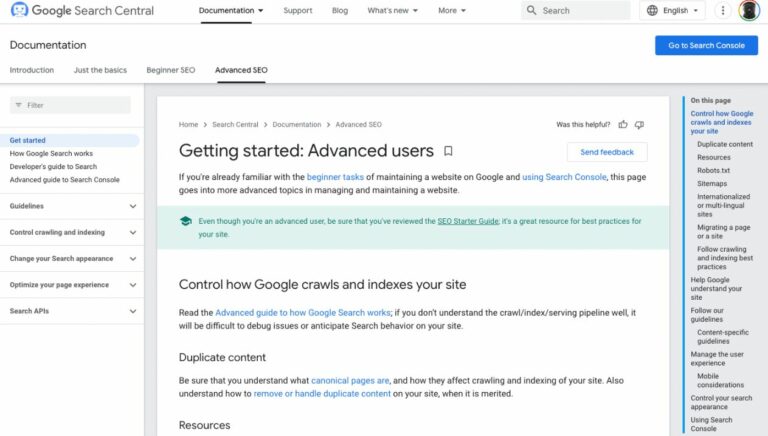 Screenshot from Google Search Central, February 2022
Screenshot from Google Search Central, February 2022
If you hire an SEO geek, you can be sure they will never miss any meaningful SEO news and will be happy to test and implement new strategies.
Bonus: Yes Or No Questions
Open questions are great for seeing how a person thinks and how deep their knowledge actually is.
However, yes and no questions may also help you check if a person updates their knowledge frequently and really knows this stuff.
Here are a few yes and no questions about technical SEO to ask your potential hire.
Ask them to justify their answers to get even more insight:
Is structured data a Google ranking factor? Do errors in the Coverage report in GSC always indicate an error on your website? Can you use Google Search Console to analyze internal links on the website? Can Google penalize you for duplicate content? Is it possible for Google to treat a 302 redirect as 301? Can you inform Google about the new domain for your website in a different way than through a 301 redirect? Should you noindex category and tag pages? Should a non-existent page always return 404? Does Google always use the canonical URL you declared? Does Google always respect the nofollow attribute on links?Final Thoughts On Interviewing Technical SEOs
If your prospective technical SEO hire managed to get through all of these questions and gave you satisfactory answers, congratulations!
Chances are good that you have a pretty smart and experienced technical SEO wanting to work for you.
On the other hand, even if the candidate wasn’t able to answer all of your questions currently but has a willingness to learn and genuine interest in SEO, they may still make a brilliant technical SEO expert in some time – if you give them a chance.
More resources:
Technical SEO Is a Necessity, Not an Option Google’s Advice on How to Hire an SEO Advanced Technical SEO: A Complete GuideFeatured Image: fizkes/Shutterstock

 MikeTyes
MikeTyes 












